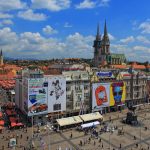Brit Travel Afternoon, a new initiative from the British Business Chamber Croatia aimed at understanding the needs and trends of British tourists so as to increase traffic, kicked off on October 12, 2017 at Kaptol Boutique Cinema in Zagreb. The topic? Young British tourists and their travelling trends. TCN was there.
British tourists have been coming to Croatia for decades. Prior to the war in former Yugoslavia, some 440,000 Brits visited the country, mostly through Yugo Tours, and the vast majority hit the Yugoslav coast, aka Croatia today and a little bit of Montenegro. At the time, it was the second biggest destination behind Spain. Regional conflict and the rise of charter holidays to destinations such as Greece, Egypt and Tunisia meant that Croatia lost its place in the market, as it tried to rebuild as a newly independent country.
The Brits are coming back in increasing numbers. According to statistics presented at the British Business Chamber Croatia panel in Zagreb on Thursday, that number has now risen to some 600,000 annually, compared to 13 million who holiday to Spain each year. A new generation of British tourists is discovering Croatia for the first time, and loving it. There have been several media reports of tensions between young party tourists this summer, and the commendable initiative from BBCC to present the needs and trends of British tourists, with the aim that better understanding can lead to increased numbers, kicked off with a well-attended first panel discussion with a high quality field of speakers with experience of dealing with young British tourists.
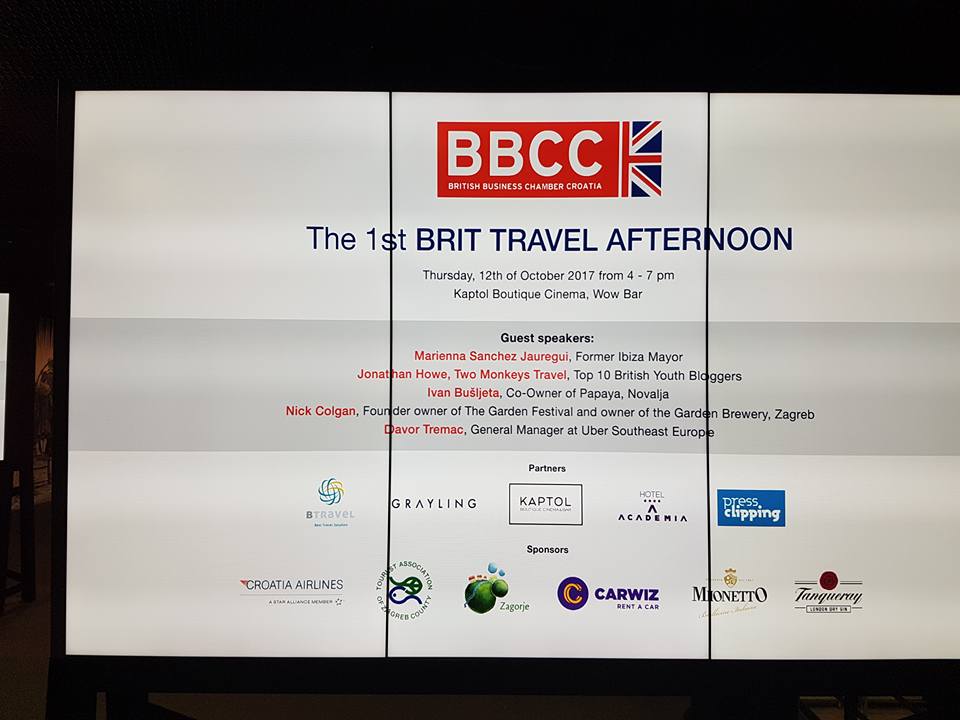
The panel, which was moderated by Dan Vidosevic, comprised Marienna Sanchez Jauregui, former Mayor of Ibiza, Jonathan Howe, one half of the popular Two Monkeys blog, Ivan Busljeta, co-owner of the club Papaya on Zrce beach, who is credited with developing a destination from almost nothing, Nick Colgan, founder of The Garden Festival, and Davor Tremac, General Manager of Uber Southeast Europe.
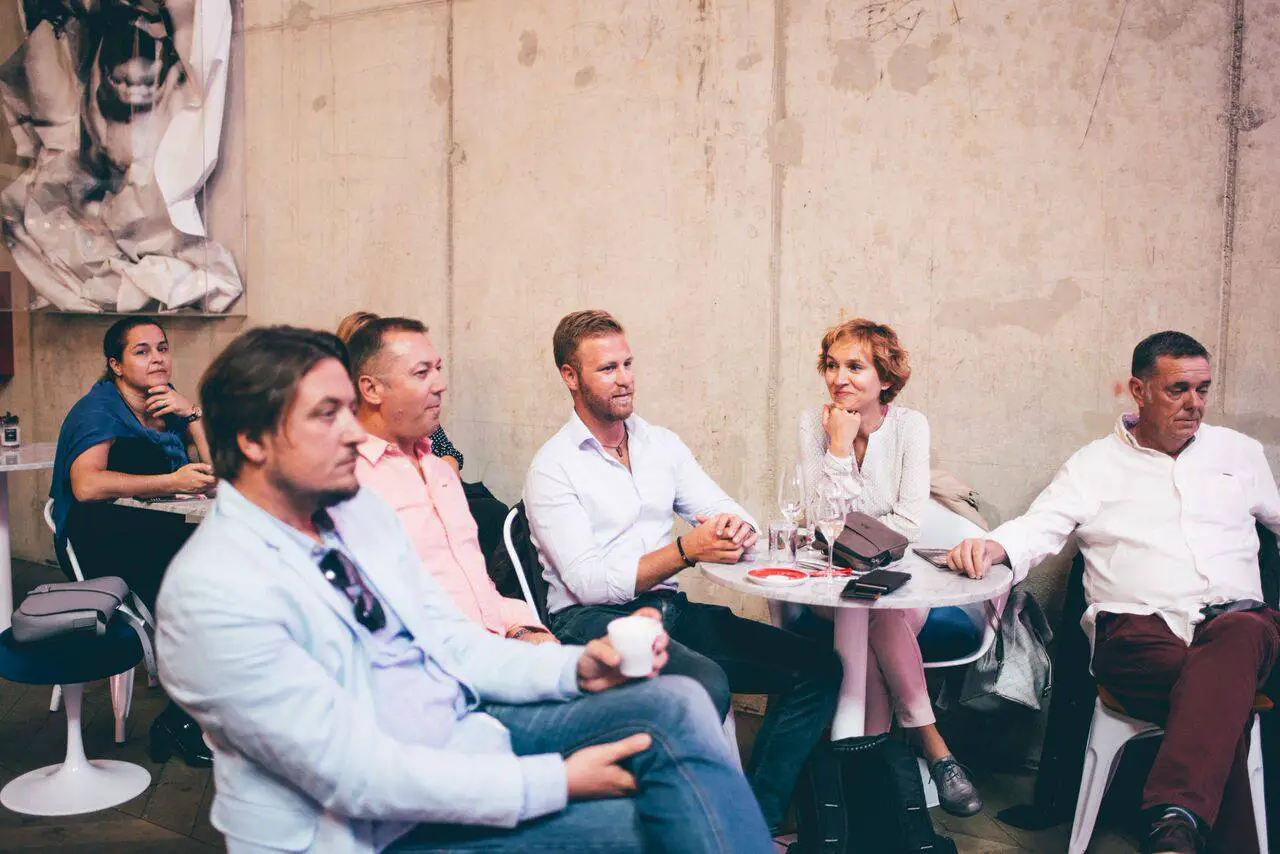
A cursory look around the room showed that plenty of thought and preparation had gone into the event, with key players in the discussion invited. Among them was Hvar Town Mayor Riki Novak, whose signs threatening fines for improper behaviour in the historic town centre made global headlines (and then were replicated in places like Venice and Florence), accompanied by his Deputy Mayor, the Hvar Town Tourist Board and Jelsa Mayor, Niksa Peronja.
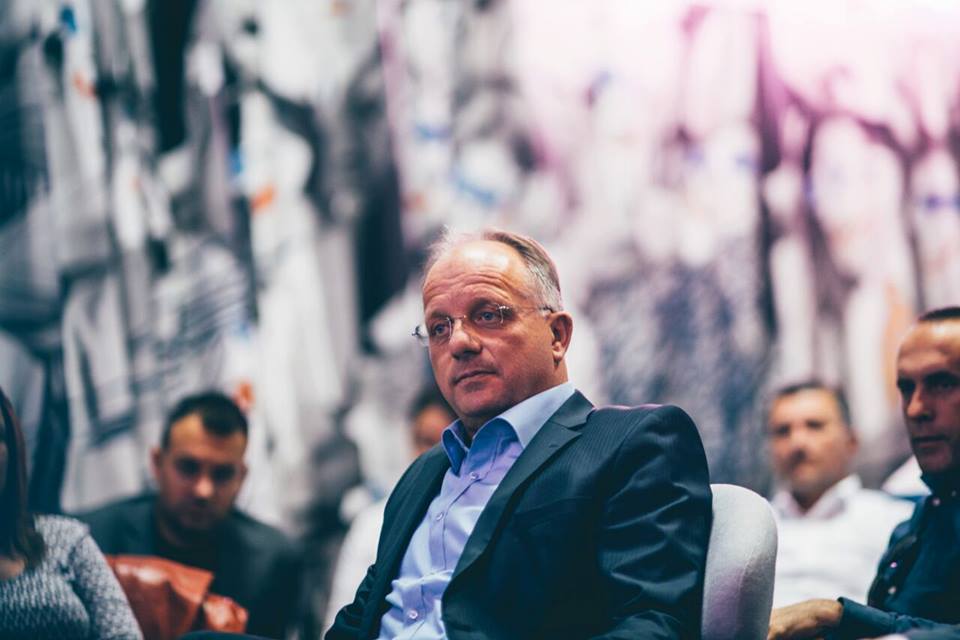
The other mayor who has been in the media regarding British tourists was Ante Dabo from Novalja, the Pag island town just a short distance from Zrce beach, who was quoted in the British media as saying:
“I have mixed feelings of sadness, bitterness and responsibility as a mayor of this town who is deceived and humiliated by barbarism and the unskilled portion of the young English guests.” A few weeks later, the BBC arrived to film a new reality called ‘Croatia 2017: The Brits are Coming.’
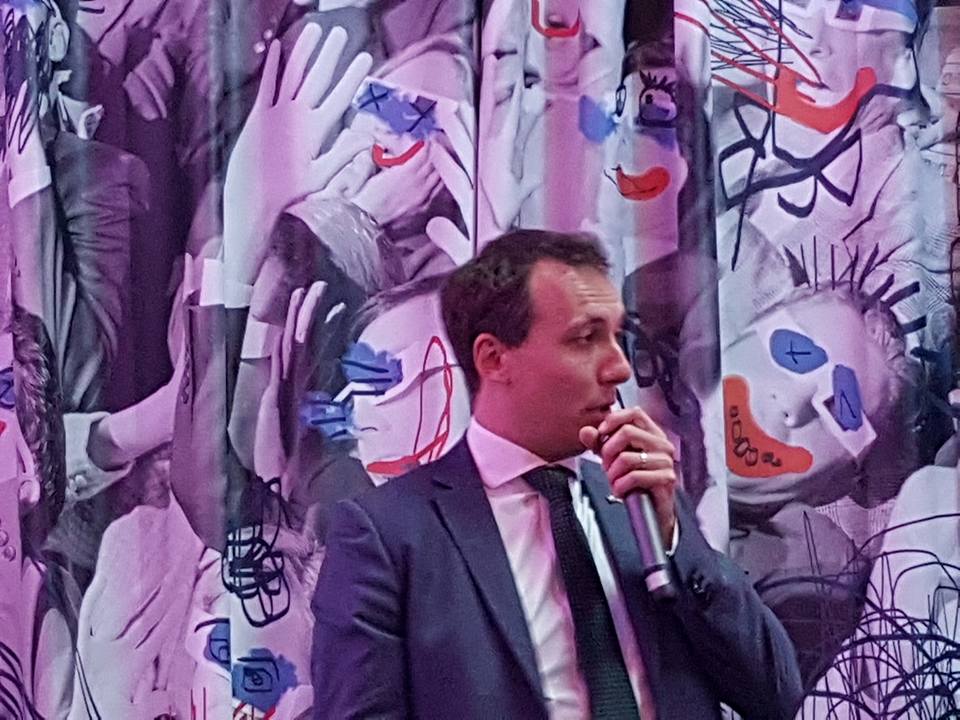
Also present was British Deputy Ambassador Peter Clemens, who spoke of the work the embassy does in liaising with local authorities and educating British tourists about Croatia.
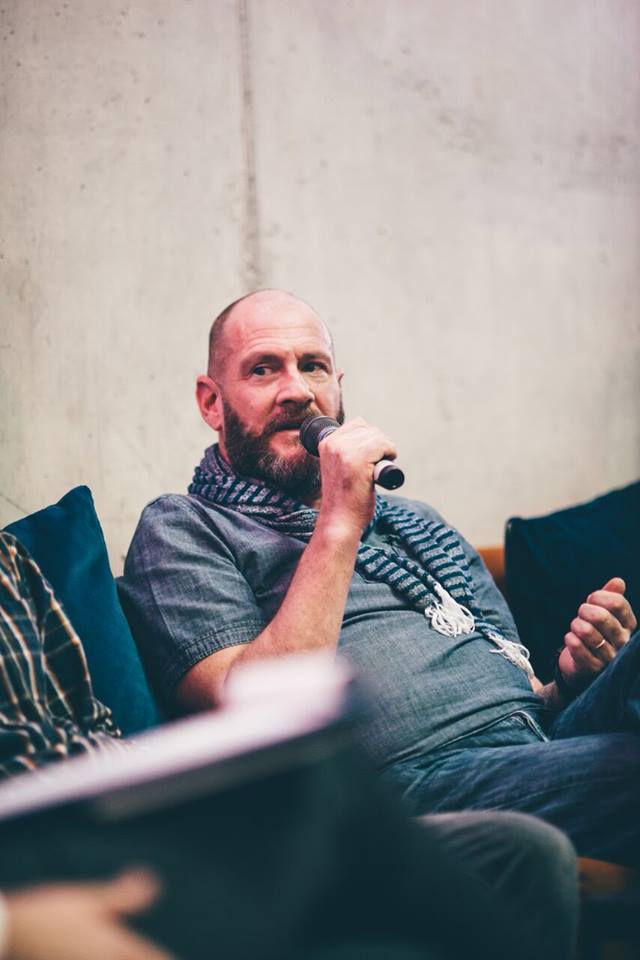
It was a diverse cross-section of opinion, with the experiences of Colgan with his iconic Garden Festival the most interesting. He explained how the festival started, with a firm understanding of the capacities available. Rather than try to make more money selling more tickets, he decided to limit the numbers to 2,500 – 3,000 a year, to work with the local authorities and the local population with regular meetings, to address concerns and work out solutions. Colgan’s festivals have always been well-run with little trouble. He was of the opinion that the young people are being treated unfairly, and it is worth mentioning that the kids are the future. Many British tourists who came to his first festival 10 years ago have returned to Croatia, and yesteryear’s party tourists are today’s family tourists. On the subject of family tourism, Vidosevic pointed out that while the young tourists may have made the headlines, they actually only comprise about 30% of British tourists to Croatia, with 60-65% being family tourists, and not all of them going to the coast. Colgan said that young tourists are not just coming to festivals, but are also exploring the nearby region, and the availability of such information will enhance the Croatian experience beyond the festivals themselves.
The case of Novalja is a little more complicated. Before the party tourism, there was relatively little tourism, and the livelihoods of locals has certainly increased considerably because of it. Papaya and other clubs have firmly established Pag as the number one party island, and claims that Hvar has that title are somewhat laughable. It is clearly a case of how to balance the fact that party tourism is the hand that feeds versus the quality of life for locals, unlike Hvar, which has a rich cultural tourism offer and tradition, one which will be celebrated in style next year as Croatia’s sunniest island celebrates 150 years or organised tourism in Europe, which all began with the founding of the Hvar Health Society in 1868. Novalja, by contrast, is extremely reliant on the party tourist, and while there are always a few idiots, Busljeta did not think there was a real problem in Novalja. He is working with local authorities to ensure that problems are kept to a minimum, something the mayor confirmed. Mayor Dabo also emphasised that all party tourists were welcome, and it was his responsibility to ensure that there were no problems. He explained that he travelled to Ibiza four years ago on a fact-finding mission, and he is constantly working with the clubs and authorities to minimise problems.
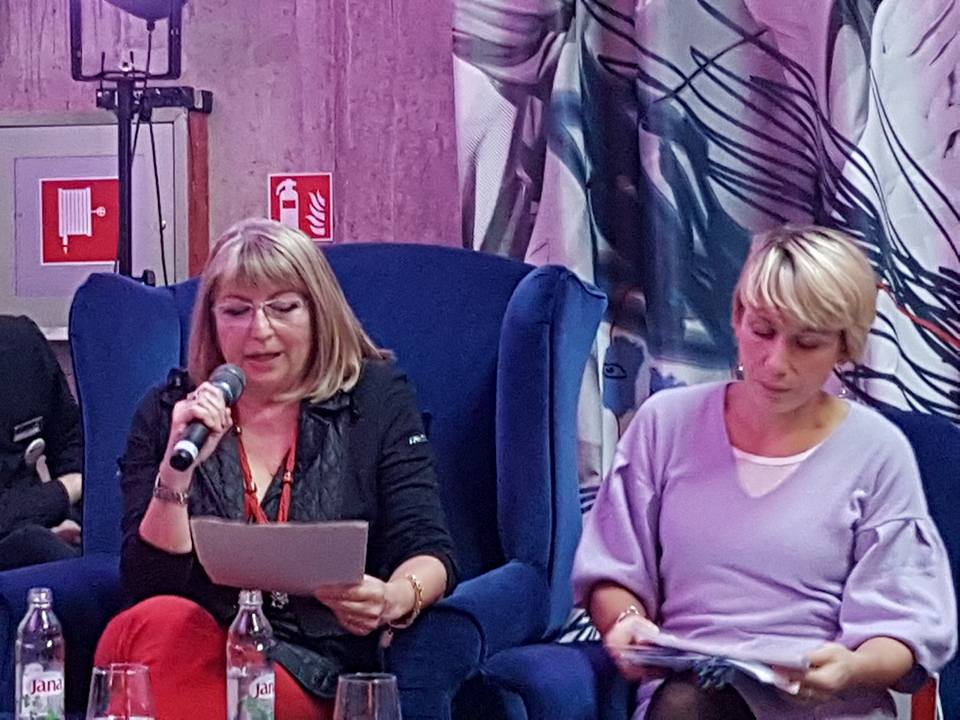
British blogger Howe made the valid point that destinations attract tourists which match the offer of the destination. If pizza cuts on the main square are the regular fare, so it will attract that level of tourist. He said it was imperative that destinations promote their attractions to attract the types of tourists they are seeking. This is particularly relevant to Hvar Town in my opinion, which is one of Croatia’s most elite destinations with a history of party and many other types of tourism. The party side has got a little out of control in recent years, and is perhaps best reflected in the tourist offer. In 2008, there were no hostels in Hvar Town, today there are over 30; art galleries on the waterfront have become cocktail bars, and one prime location waterfront restaurant is now a nightclub.
Uber boss Tremac was asked to talk about the tourist experience. People are staying shorter periods in destinations these days, and technology is helping them move around more quickly. Interestingly, he said that 120,000 tourists used the Uber app this year, from 120 countries, and that 90% of them already had the Uber app on their phone from their home countries. Modern tourists now expect this type of technology to be available in destinations. In terms of promoting the tourist experience, the launch of UberBOAT in Dalmatia this summer received huge global media attention, and was an excellent promotion both of Croatian tourism, but also a way how technology can enhance the tourism experience. Tremac also gave some details on the impact of Uber in Croatia, with some 120,000 locals downloading and using the app, and some 2,000 drivers working with the Uber platform. Impressive numbers, given the well-documented difficulties the company has had with Croatian taxis this year.
Sanchez Jauregui, speaking through an interpreter, talked about the rise of tourism in Ibiza, where San Antonio went from sleepy fishing life to hippy tourism and then to the party. A little like Novalja, party tourism dominates and is a major source of revenue for locals, but it also brings friction. Efforts have been made to improve things by limiting the hours clubs can play music on openair terracing, better soundproofing of clubs, a requirement for clubs to be closed for at least some of the day (previously they were 24 hours), restrictions on drinking in public places, and measures to combat the bizarre craze known as balconing, whereby young tourists jump from their hotel terrace into the hotel pool, many with unfortunate results. Crucially, the local authorities are working with the clubs to ensure the best balance for all, and the clubs are also now active in promoting other activities on the island, rather than just clubbing.
Colgan says that he is regularly contacted by the British media to do features on his festivals, but he declines. By contrast, the Novalja mayor did accept an invitation from the BBC to film a reality show about young British tourists in Novalja, called The Brits are Coming. He professed himself satisfied with the results for the promotion of his destination. Judge for yourself – below is one of the BBC highlights from one episode.
Colgan also made the point that more should be done to extend the season, rather than try and pack everything into the few months of summer. Although transport issues have improved immensely (he recalled that coming to Zadar when he first moved involved a flight to Zagreb, then a 6-hour drive to Zadar on the old road – no motorway back then), but certain commonsense measures such as Croatia Airlines putting on more direct flights to the coast would improve things further.
So has the media been blowing up the problems of young, drunken British tourists? On the surface of the panel discussion, it would appear that it may be the case. There was one important omission in the whole debate, at least in my opinion. The experience of the party tourist was set in the context of festivals only. All panellists made excellent points, and the need to work with local authorities, educated on expected behaviour, work with the hospitality industry and the local population to minimise problems, and present the destinations in the very best light made complete sense. The reality this summer is that the tensions with the party tourists have not been so much at festivals as with party boats and along the coast where no festival has been taking place. If all the initiatives mentioned above are implemented elsewhere, the main problems could easily right themselves. It remains to be seen how local authorities and law enforcement agencies along the coast prepare themselves for next season, which is certain to be a very busy one again.
An excellent initiative by the British Business Chamber Croatia, and the first in a series of such panel discussions regarding trends in the British tourist. Such initiatives are extremely welcome as a means to tackle prejudiced views, unlock new opportunities and promote better results for British tourists visiting Croatia.


